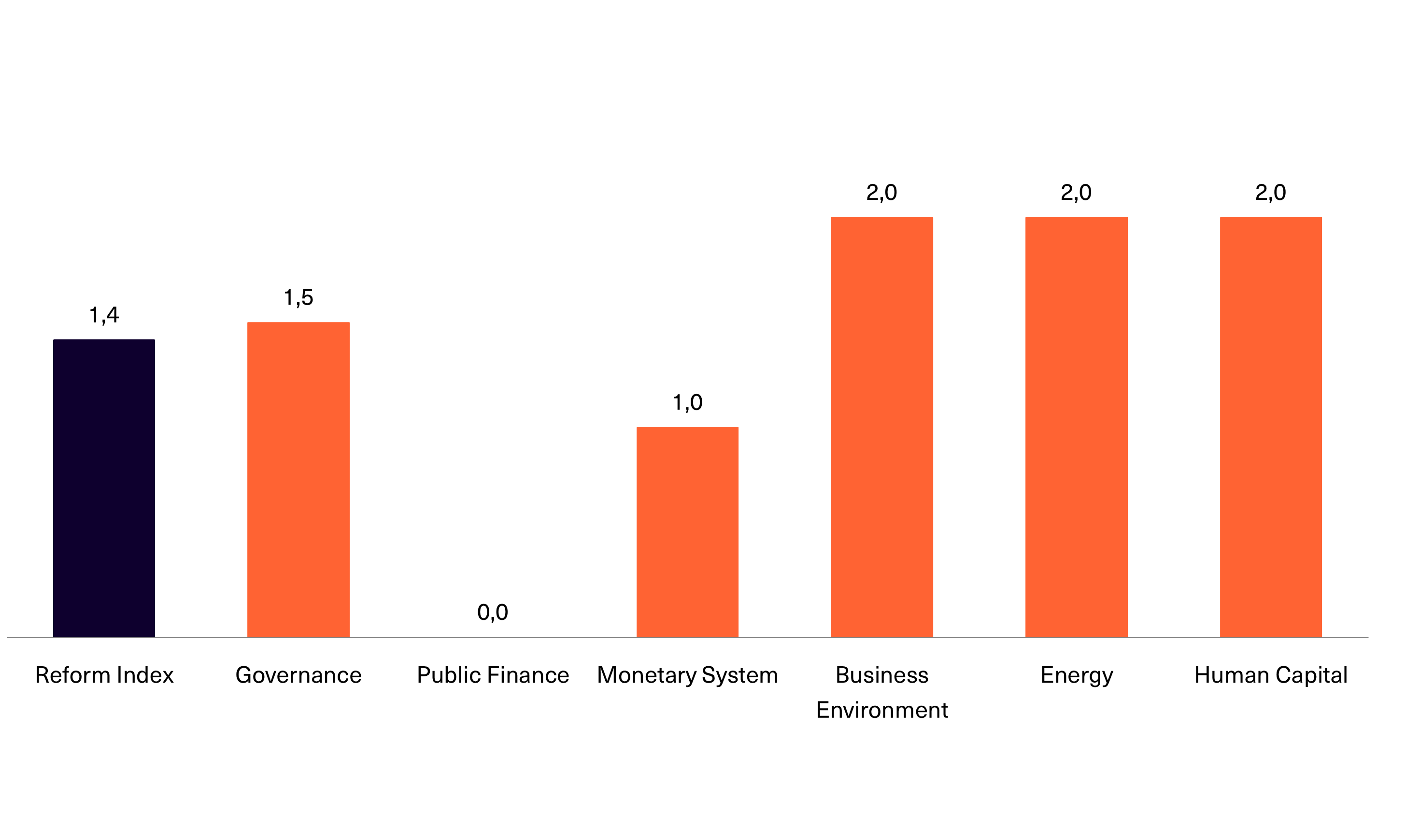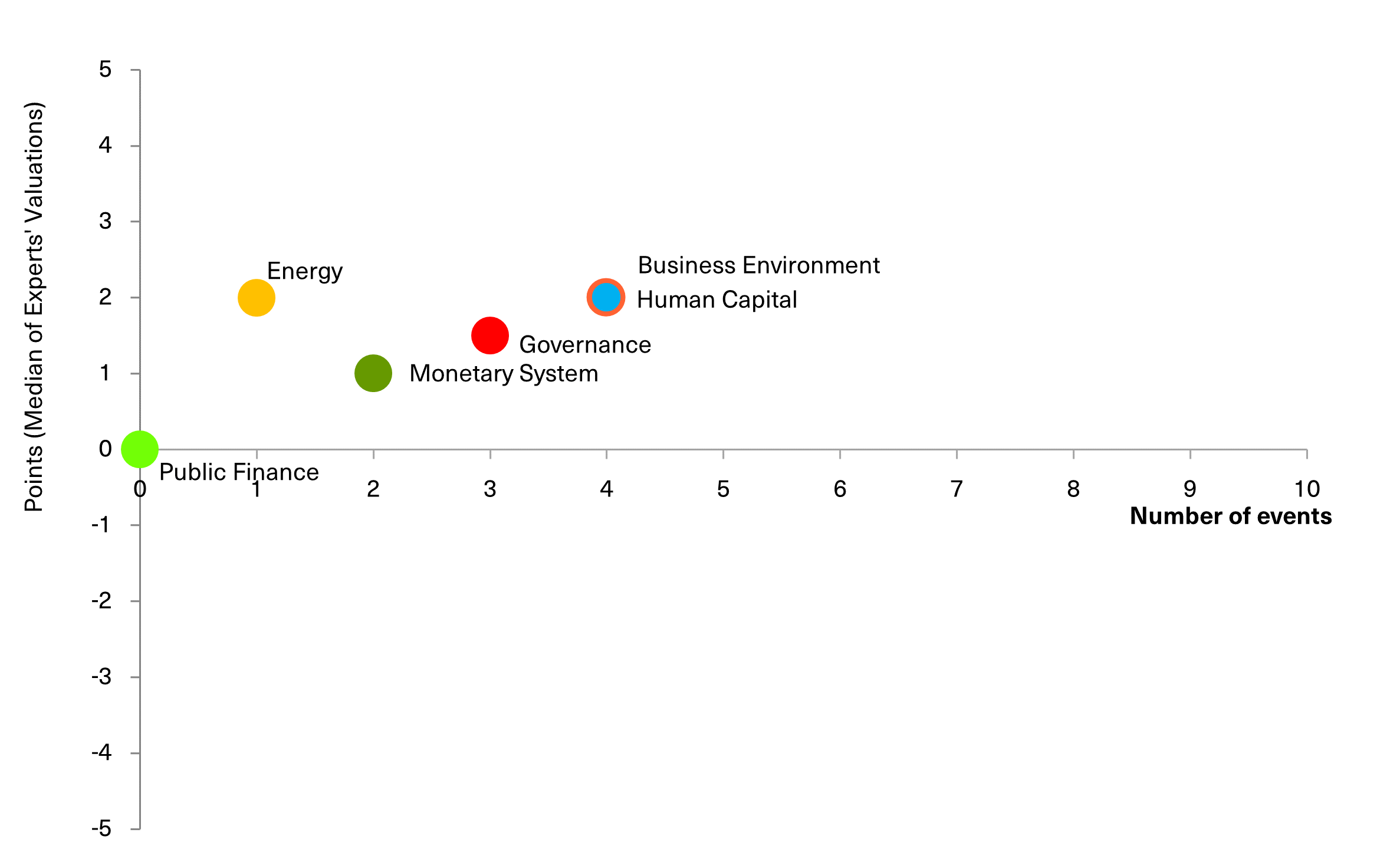Reform Index’s 220th issue covers the period from August 28 to September 10 and incorporates fourteen reforms. In this release, we highlighted the most significant ones, including the law on the development of telemedicine and the law on the implementation of corporate governance in the “Gas Transmission System Operator of Ukraine.” The overall rating of the Reform Index is +1.4 points on a scale ranging from -5 to +5 (in the previous issue, its value was +0.8 points).
Graph 1. Dynamics of the Reform Index
Graph 2. Values of the Reform Index and its Components in the Current Assessment Round
Law on telemedicine, +2 points
In early September, Ukrainian President Volodymyr Zelensky signed legislation changes to promote telemedicine development. Telemedicine is a component of the e-healthcare system, which involves providing certain medical services remotely, such as through online consultations with healthcare professionals.
The changes are intended to address strategic issues related to the development of telemedicine in Ukraine. The document includes definitions of key concepts in this field, including “telediagnostics and consultation,” “telemedicine network” (a system of corresponding services, their providers, and organizational and technical measures within the e-healthcare system), and “telemetry” (technologies and tools that allow for remote measurement of patient health indicators and automatic processing of such data).
It is envisaged that medical or rehabilitation services using telemedicine can be provided by healthcare institutions or individual medical practitioners (entrepreneurs) who have obtained a license to practice medicine.
Information about the Reforms Index project, the list of Index experts and the database of the regulations assessed are available here.
Law regarding the optimization of the structure of the “Gas Transmission System Operator of Ukraine,” +2 points
In August, the Verkhovna Rada adopted, and the President signed into law, a piece of legislation establishing the legal and organizational framework for the reform of managing the gas transmission system operator in Ukraine, known as “LLC Gas TSO” or “GTSOU.”
GTSOU was created in 2019 as part of the so-called unbundling process, which involved separating the gas transportation function from the National Joint-Stock Company “Naftogaz of Ukraine.” As a result, the gas transmission system remained under state ownership, and its management was transferred to GTSOU. In turn, GTSOU was managed by the Ministry of Finance through JSC “Main Gas Pipelines of Ukraine” (MGP).
Under the new law, the corporate rights of GTSOU will be transferred from MGP to the Ministry of Energy of Ukraine. Additionally, the company will adopt a new charter that must be coordinated with the Energy Community Secretariat, an international organization whose goal is to integrate European countries into a single energy market.
According to the document, GTSOU will also get a new supervisory board, which is to be elected by October 31.
The changes introduced by this law are necessary to comply with the memorandum with the International Monetary Fund (IMF).
Chart 3. Value of Reform Index components and number of events
Reform Index from VoxUkraine aims to provide a comprehensive assessment of reform efforts by Ukraine’s authorities. The Index is based on expert assessments of changes in the regulatory environment in six areas: Governance, Public Finance, Monetary system, Business Environment, Energy, Human Capital.
Attention
The author doesn`t work for, consult to, own shares in or receive funding from any company or organization that would benefit from this article, and have no relevant affiliations






